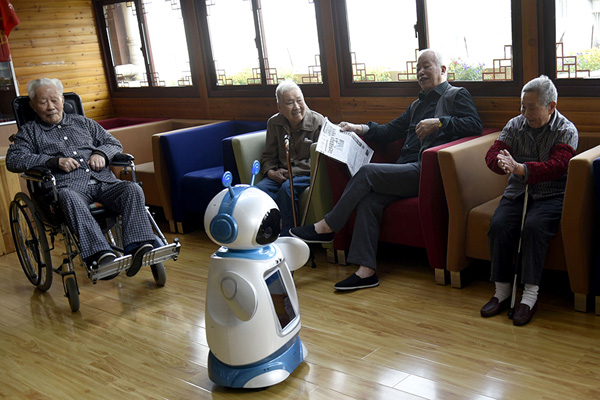Highlights of draft rules on Civil Code's basic principles
Updated: 2016-06-28 16:06
(chinadaily.com.cn)
|
|||||||||
3. Seniors with limited capacity to get guardians
When minors, persons in a vegetative state, people with mental obstacles and patients with Alzehimer's disease want to join social activities, or if their interests need to be protected, who will decide? The answer is their guardians.
The current civil laws only provide that the guardianship covers minors and mentally ill people. The draft has extended help along the lines of those with mental obstacles or who totally or partially lose their cognitive abilities.
Draft: Adults who are unable to account for their own conducts shall have no capacity for civil conducts.
Interpretation: The change has enlarged the guardianship's application scope, which will give full play to the function of the guardianship system, said Li Shigang, an associate law professor in Fudan University.
Zhang Wei, a lawyer at Beijing Zhi Zhi Law Firm, said the extension of guardianship would effectively protect the elderly's personal and property rights.
"Compared with minors, adults have more rights that are easier to damage. That is why it is important and necessary to write it into the draft," Zhang said.
Related Stories
Civil code guideline submitted to top legislature 2016-06-27 14:38
The Implementation of the Civil Code for the Protection of Animals and Environment: Pros and Cons of the Draft Civil Code(Special Issue No.21, 2016) 2016-06-13 14:58
First step taken to compile a civil code 2015-05-14 07:43
Country's Civil Code taking shape 2008-10-30 07:38
New laws to help shape China's Civil Code 2008-10-30 07:21
Advice for civil code solicited 2003-03-28 08:28
Today's Top News
Britain urged not to waste time in divorcing EU
Turkey's Erdogan apologizes to Putin
UK opposition leader Corbyn says will not resign
10 hurt in rollercoaster accident in central Scotland
Vote poses China-UK trade ties challenge
China respects Brexit decision
UK vote blows the whole European plan wide open
Cameron to quit as PM after UK votes to leave EU
Hot Topics
Lunar probe , China growth forecasts, Emission rules get tougher, China seen through 'colored lens', International board,
Editor's Picks

|

|

|

|

|

|








